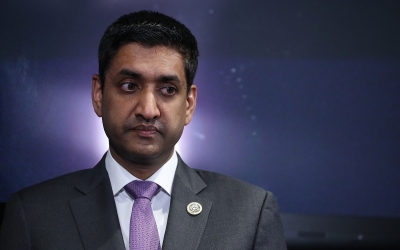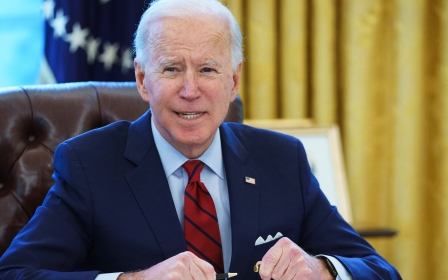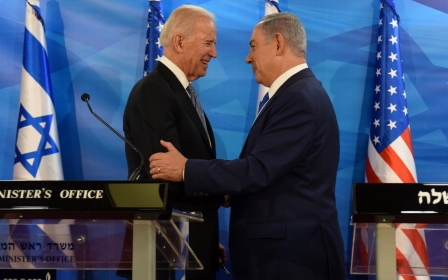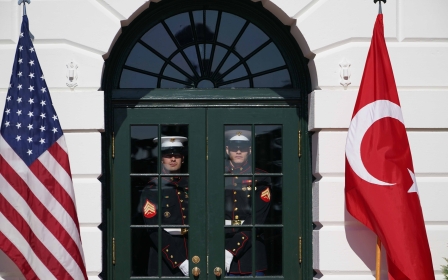Biden ends US support for Saudi Arabia's war in Yemen
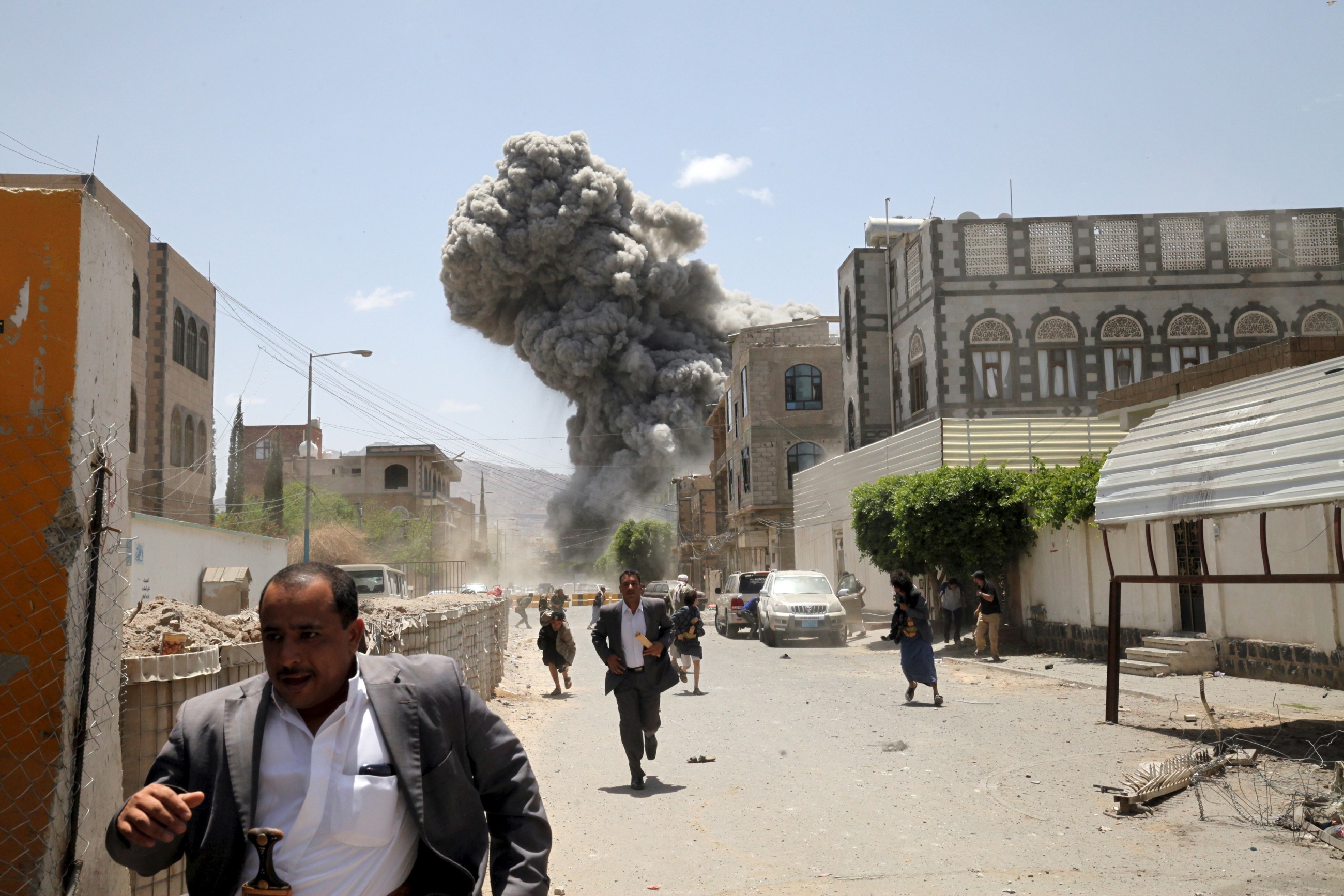
US President Joe Biden announced the end of US support for a Saudi-led coalition that is waging war in Yemen, in a major policy reversal from the previous administration that may alter the course of the conflict.
"This war has to end. And to underscore our commitment, we're ending all American support for offensive operations in the war in Yemen, including relevant arm sales," Biden said on Thursday in his first major foreign policy speech.
It was not immediately clear whether Biden will suspend all arms sales to Saudi Arabia or only weapons that may be used in offensive operations in Yemen.
Biden followed his statement on ending support to the Saudi-led coalition by voicing commitment for the kingdom's security.
"Saudi Arabia faces missile attacks, UAV [unmanned aerial vehicle] strikes and other threats from Iranian supplied forces in multiple countries," Biden said. "We're going to continue to support and help Saudi Arabia defend its sovereignty and its territorial integrity and its people."
New MEE newsletter: Jerusalem Dispatch
Sign up to get the latest insights and analysis on Israel-Palestine, alongside Turkey Unpacked and other MEE newsletters
Biden expressed support for UN efforts to secure a ceasefire in Yemen and pledged to bolster US humanitarian aid and diplomatic involvement to end the conflict.
The US president also announced Timothy Lenderking, a career diplomat, as envoy to Yemen.
"I've asked my Middle East team to ensure our support for the United Nations-led initiative to impose a ceasefire, open humanitarian channels and restore long-dormant peace talks," Biden said.
'The US role has been shameful and devastating to Yemen'
- Shireen al-Adeimi, Yemeni-American activist
Saudi Arabia and its regional allies, namely the United Arab Emirates, have been conducting a bombing campaign in Yemen since 2015 against the country's Houthi rebels to restore the government of President Abd Rabbuh Mansour Hadi.
Riyadh views the Houthis as Iran proxies, but the rebels deny receiving material support from Tehran.
The conflict has killed more than 100,000 people and brought the already impoverished country to the verge of famine, in what the United Nations has called the world's worst humanitarian crisis.
Former President Donald Trump resisted calls to end US assistance to the Saudi-led coalition and in 2019, he vetoed legislation to end that support.
Biden had pledged to "reassess" US-Saudi relations. Last month, the administration froze weapons sales to Riyadh and was reviewing purchases made by the UAE.
Ending the war
Saudi Arabia's Deputy Defence Minister Prince Khalid bin Salman, a brother of powerful Crown Prince Mohammed bin Salman, said Riyadh looks forward to working with the Biden administration to solve issues in the region, without commenting on Washington's decision to end support for the kingdom's war efforts.
"We welcome President Biden’s stated commitment to work with friends and allies to resolve conflicts, and deal with attacks from Iran & it’s proxies in the region," Khalid said in a series of tweets late on Thursday.
"As we have for over 7 decades, we look forward to working with our friends in the US on addressing these challenges."
Anti-war activists and lawmakers have been pushing to end the US involvement in the Yemen war. Beyond weapons sales, Washington had been providing logistics support and sharing intelligence with the Saudi-led coalition in Yemen.
Afrah Nasser, Yemen researcher at Human Rights Watch, welcomed the announcement but said the new administration needed to investigate whether any US officials were complicit in war crimes.
"This looks like a very positive step, but does not dismiss the fact that the US, according to investigations by Human Rights Watch and reports by a UN panel of experts, has risked complicity in committing war crimes over weapons sales to the Saudi-led coalition," she told Middle East Eye.
During the past six years, legal scholars had warned that American support for the coalition put Washington in a position to be accused of providing material support to a military offensive that has continuously killed civilians.
In a detailed report in September, the United Nations asked the Security Council to refer the conflict to the International Criminal Court (ICC) for an investigation into potential war crimes by all parties.
The United States, not a party to the ICC, had objected to any investigations into itself or allies.
"As much as this is a welcome step, it's important that accountability comes as a central element of withdrawing support. And this means that the US has to seriously investigate whether US officials were involved in war crimes in Yemen," Nasser said.
Ariel Gold, national co-director at the anti-war group Code Pink, said when her organisation started protesting against the war in 2015, "We were often out in the streets by ourselves with small numbers."
Opposition against the war grew as the humanitarian catastrophe ushered in by the fighting became more apparent.
"I feel celebratory, filled with hope," Gold told MEE. "And yet, I also know that this isn't the end. There's still much more work to be done. This won't end the war entirely, and we don't know the full extent yet of what exactly Biden is going to do."
Rasheed Alnozili, publisher of Yemeni American News, a bilingual publication based in Detroit, welcomed the announcement and lauded Biden for fulfilling his campaign promise.
"But this is just the beginning," Alnozili told MEE. "Ending US support for the Saudi-led coalition is a means. The goal should be ending the war altogether, which is a more difficult task."
He called on the Biden administration to encourage Saudi-Iranian dialogue to address the various conflicts in the region, including that in Yemen.
The US role
Details about what Biden's decision will entail and how exactly it will impact the conflict are sparse. It is not clear whether the decision will affect weapons sales or Washington's role in a blockade that has been a catalyst for shortages and suffering.
"Certainly this is good news, as Biden seems to be following through on his campaign promise to end all US support for the war. However, it remains to be seen what his administration considers 'offensive' vs. 'defensive,' as Obama's justification for entering this war was defending Saudi Arabia against Yemen's Houthis," said Shireen al-Adeimi, a Yemeni-American activist and professor at Michigan State University.
The Saudi-led coalition's bombing campaign started in 2015 with the full backing of then-President Barack Obama. Biden served as vice president at the time.
"In support of GCC actions to defend against Houthi violence, President Obama has authorised the provision of logistical and intelligence support to GCC-led military operations," the National Security Council said in a statement on 25 March 2015.
Adeimi called for a complete halt of Washington's involvement in the war, including "weapons sales, intelligence sharing, training soldiers and pilots, servicing vehicles and aircraft, and assisting with targeting".
'Today, we begin a new chapter of American leadership in Yemen'
- Debbie Dingell, US congresswoman
"The US role has been shameful and devastating to Yemen, and accountability must follow a full exit from this war," she said.
Congresswoman Debbie Dingell, a Michigan Democrat who represents a large Yemeni community, welcomed the move by Biden, saying that the war had caused "immense pain and suffering".
"By ending support for offensive operations, our government can focus on the diplomacy and humanitarian relief necessary to bring peace and safety to millions in the country and surrounding region… Today, we begin a new chapter of American leadership in Yemen, but that only means the hardest work is ahead of us," Dingell said in a statement.
Imad Harb, director of research and analysis at the Arab Center Washington DC, said Biden's announcement is a "major step" that will likely shake US-Saudi relations.
He said Washington has been "almost as guilty as Saudi Arabia and the UAE" of the human suffering in Yemen, but that Biden was trying to separate himself from the policies of the previous administration.
"Let's not forget that Biden has to answer to a domestic audience, especially within the Democratic Party, that is objecting to further US assistance for the war efforts in Yemen," Harb said.
While opponents of the war celebrated Thursday's announcement, many called for more specifics about the new US policy. The White House did not respond to MEE's request for comment.
"Ending US support for the war in Yemen, which has killed thousands of people and left millions in need of humanitarian assistance, is a really important step and one that we owe to many years of grassroots activism including from Yemenis and Yemeni Americans," said Annie Shiel, senior adviser for US policy and advocacy at the Center for Civilians in Conflict.
Shiel added that while the policy implications of Biden's remarks are not entirely clear, she hopes the new approach includes permanently freezing recent arms sales to Saudi Arabia and the UAE.
She accused the two countries' air campaign in Yemen of killing, displacing and starving civilians and bringing about "the destruction of schools, hospitals, markets, and other essential infrastructure and services".
"To continue to send arms given the fact that there has been no accountability for any of the harm to date, including several significant incidents, would also send a harmful signal of impunity."
Middle East Eye delivers independent and unrivalled coverage and analysis of the Middle East, North Africa and beyond. To learn more about republishing this content and the associated fees, please fill out this form. More about MEE can be found here.


